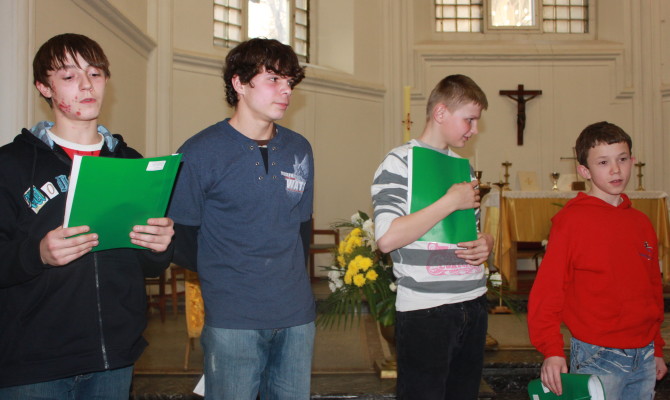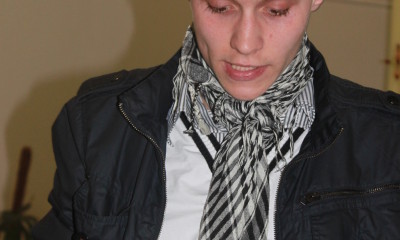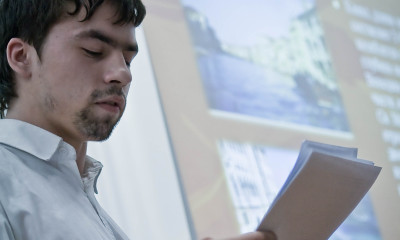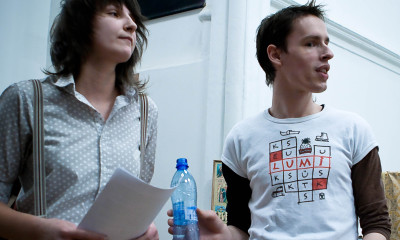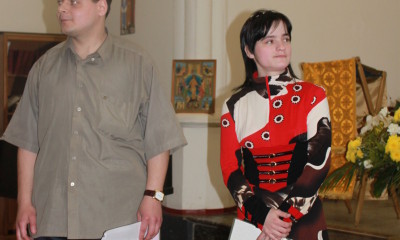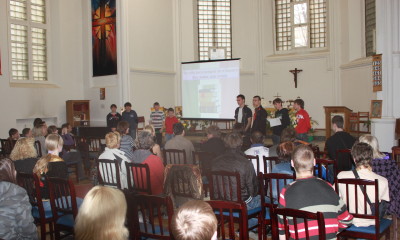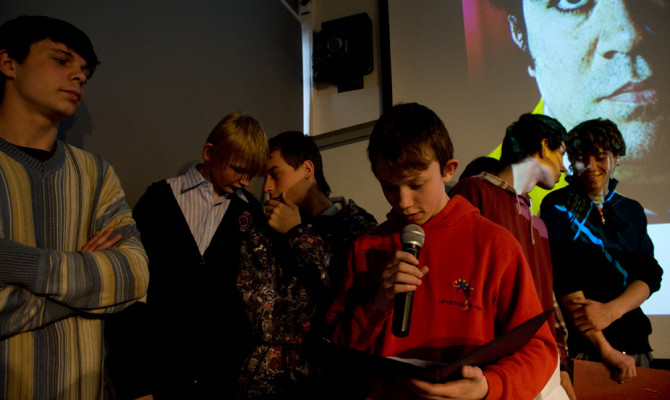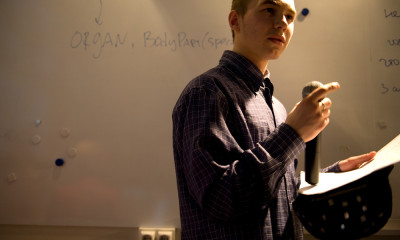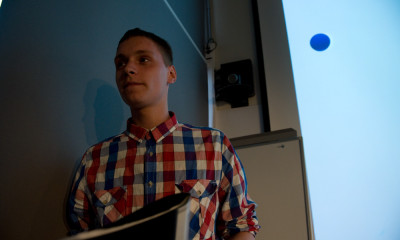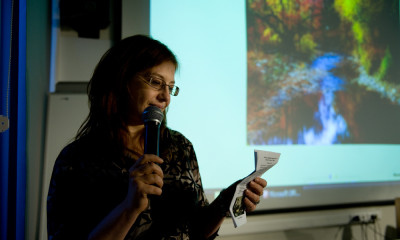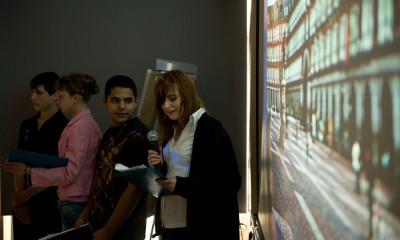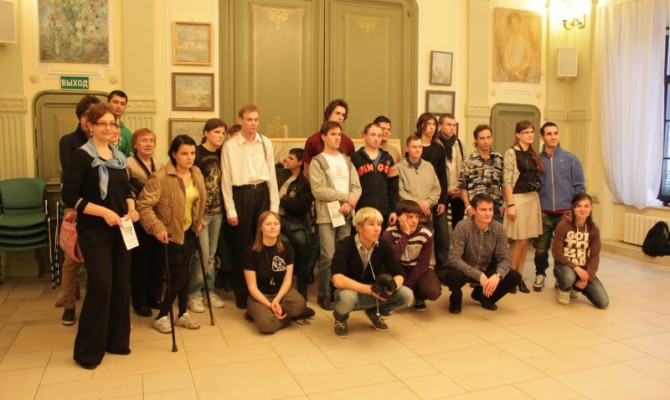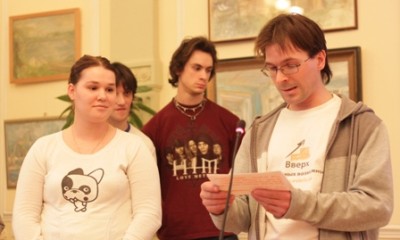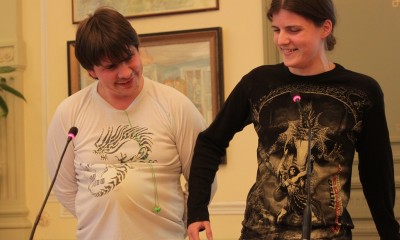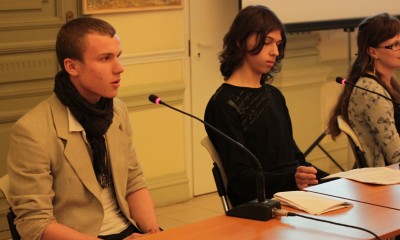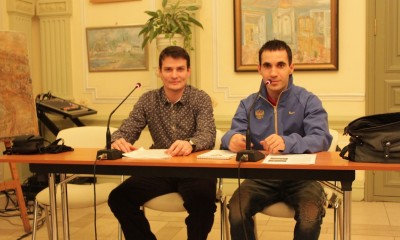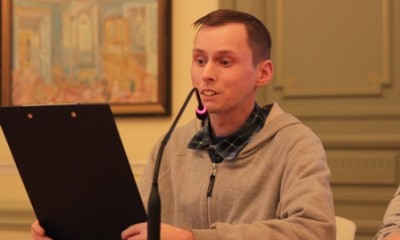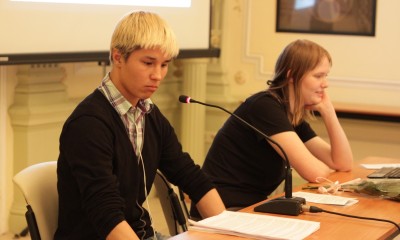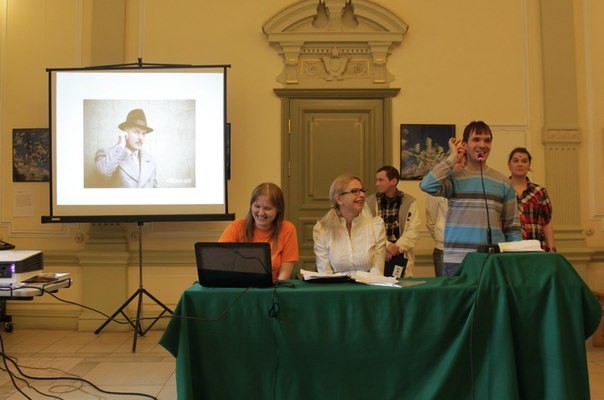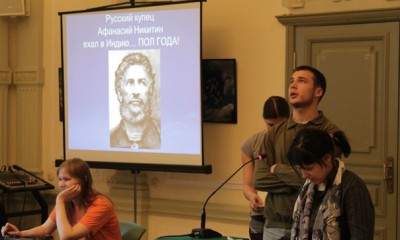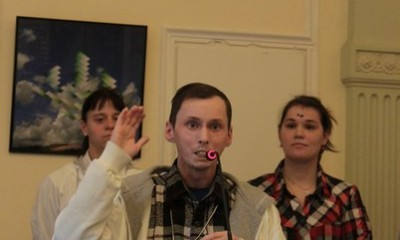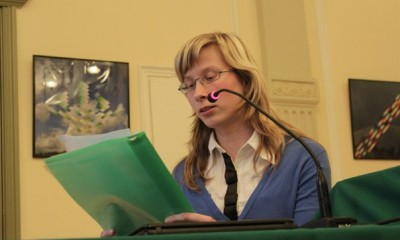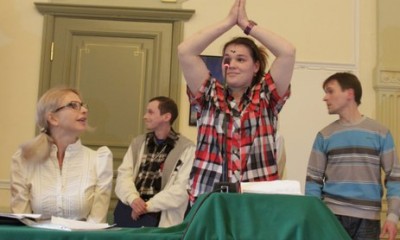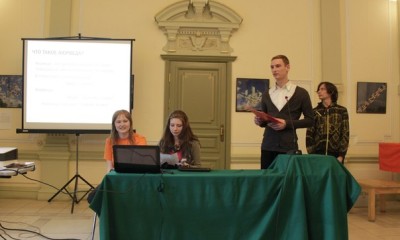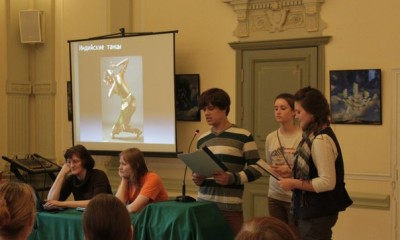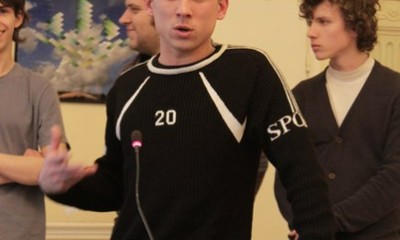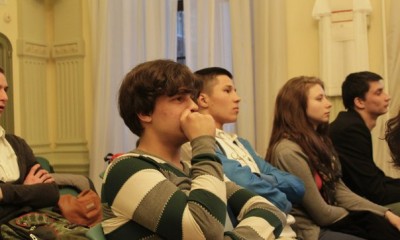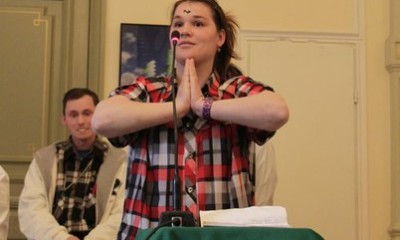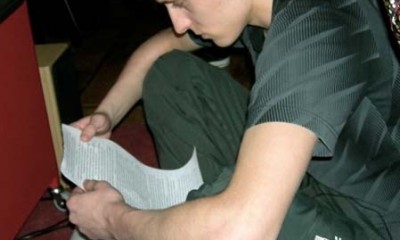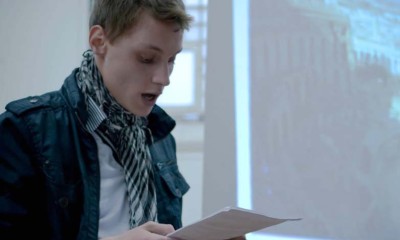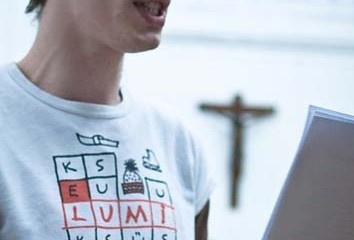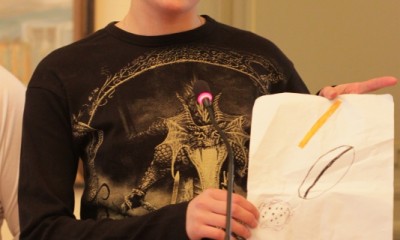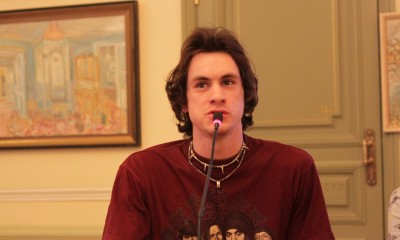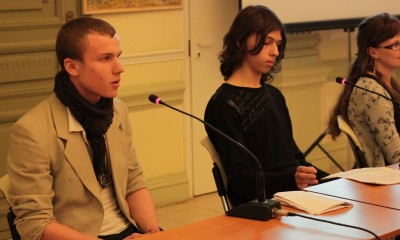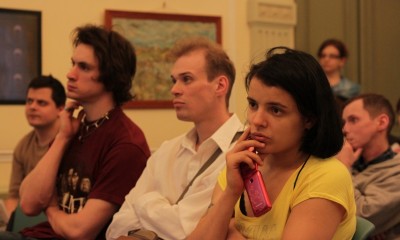Foreign cultures club
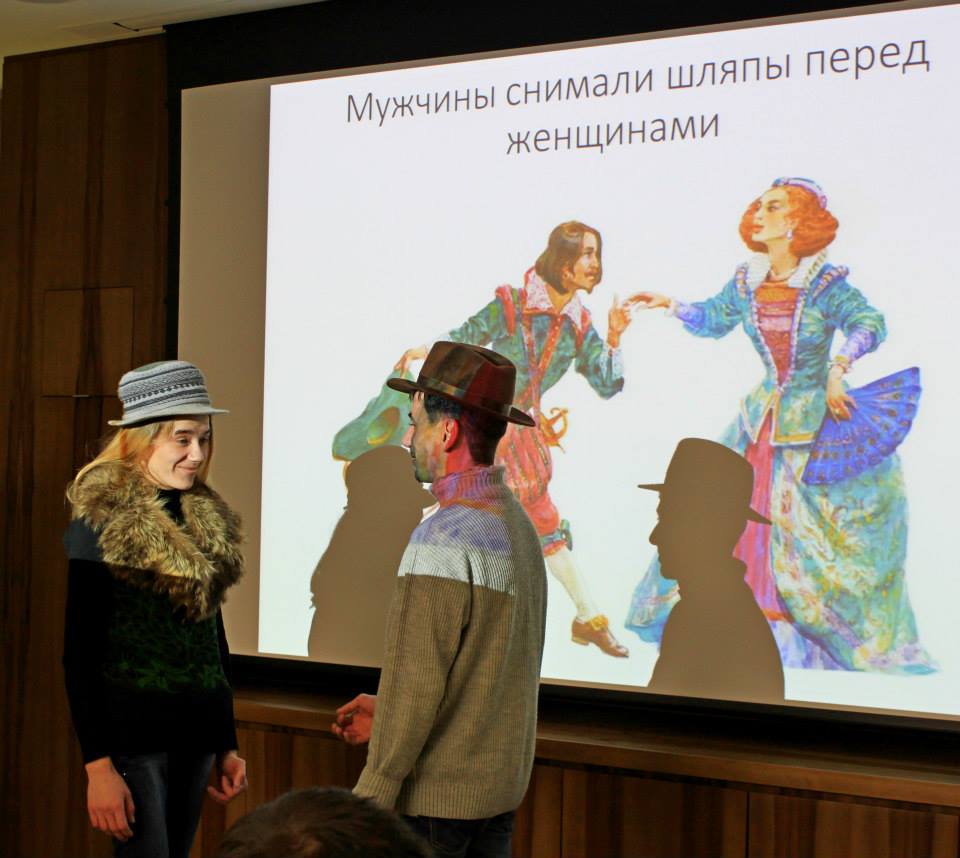
Eager to contribute to the running of the Centre, Ulyana Shilkina, Maksim Shmakov and Oksana Korotchuk were responsible for the formation of this club. It has now become a key part of Step Up.
Foreign Cultures Club gives students a forum to study the customs and characteristics of a chosen country. Over the course of the year this includes the country’s culture, its ethnic make-up, geography, economy and politics.
The club not only aims to widen horizons, but to develop students’ presentation skills and their ability to identify, review and present information clearly and concisely.
Students learn about the country’s traditions, watch and discuss their films, go to plays and exhibitions about the chosen country and have a go at making their national dishes.
Every year Foreign Culture Club culminates in preparing a presentation for a conference we put on about that country (usually in April and May).
Each group prepares its own mini-presentation. This may be a report, a powerpoint presentation, a sketch, an amateur film or a play – whatever the group decides. The evening ends with tea and a tasting of national dishes.
To find out more about our conferences, and which countries we have already covered, have a look at the photos below.
Italy, April 2010
“Foreign Cultures: Italy” took place in April 2010. This was the third time that our students had presented in front of a large, unfamiliar audience. Before that they had given computer-based presentations on French and English history and culture. In comparison with their previous efforts, it was clear that students had really grown, learnt a great deal and become much more self-confident. Furthermore, their work had become more professional, interesting and creative. Following the presentation, there was a buffet laid on for them with Easter eggs and Italian pizza – we were celebrating Easter at the same time as the conference.
Spain, April 2011
The 2011 conference was a special one. Firstly, it did not happen in the usual place. For that we are grateful to Strelka Institute for Media, Architecture and Design and personally to Nataliya Fishman and Maria Zemlinskaya. The students, who already had experience of giving presentations, were not flustered, but quickly got their bearings in the new location and worked out a set-up that was comfortable for them.
Secondly, it was the first time that we had students who refused our teachers’ help and organised their work themselves, finishing it to quite a high level.
Thirdly, it was most likely the first time in four years that students related so personally to their project. It was obvious that many of them were not just reading a report, but presenting the results of their work. The presentations included not only pre-prepared speeches, but also various types of improvisation, including rap, and audience participation. It should be noted that such public creativity is characteristic of those who are already professional speakers. Having become a Step Up tradition, the conference has started to produce results. The students were capable of straightforwardly, briefly and interestingly presenting the information they had found and analysed. Moreover, they related both to their work and to the work of other students. Against a background of unconditional support and interest in each other, students also noted areas that they needed to improve. One of the best parts of each conference is possibly the discussion, initiated by the students, of what will be the next country to study.
Germany, May 2012
This conference was the outcome of work between students and group curators. After all, something special must be extracted from a huge quantity of interesting material and packaged in an appealing way.
The students rose to the task fantastically well. Projects were dedicated to the cultural, ethnic, industrial and geographical features of Germany.
Students from Group 1 gave one particularly unusual presentation about the Brothers Grimm. It reminded us of ‘The Straw, the Coal and the Bean’ – and everyone found out why a bean has a ‘seam’ along its side!
With students from Group 5-1, we then moved to Berlin’s Museum Island where there is a whole constellation of famous museums containing a unique world of German culture. And, of course, it would be impossible to leave out famous German composers and poets – Schumann, Beethoven, Bach, Wagner and Goethe. Students from Group 5-2 introduced us to famous composers and their great works.
Students from Group 6-2 told us about the particularities of Germany’s geography and its flora and fauna. Maksim, a student from this group, made a film himself about the famous BMW factory. It was fascinating!
Students from Group 7 revealed some of the secrets of German aviation during the war years. We learnt about the secret development of flying saucers and planes.
The quality of the presentations and the film undoubtedly indicated a new level of preparation from our students and their desire to learn. Furthermore, it demonstrates the importance of such projects for the students themselves. It is not a competition, but a chance to share new knowledge with students and teachers in friendly surroundings.
It was very pleasing to see that Step Up graduates also came to the conference to support students who were presenting. And Polina’s informative report about the work of Goethe was its logical conclusion. Despite the worries, and the fact that some students were participating for the first time, the conference was a great success.
India, April 2013
The topic for the annual student conference on foreign cultures in 2012-13 was India.
At the conference, students spoke incredibly interestingly and elegantly about symbols and gestures, Indian parables, Indian cooking, dance, cinema personalities, religions, Ayurvedic medicine, India under British rule and many other interesting things.
The Centre’s students were not the only ones to participate in the conference; there were also graduates, volunteers, friends and guests. An especially important moment was the discussion initiated by the students outside the framework of their groups.
The conference took place in the conference hall of the Pokrovsky Gate Cultural Centre.
